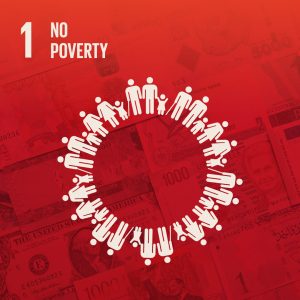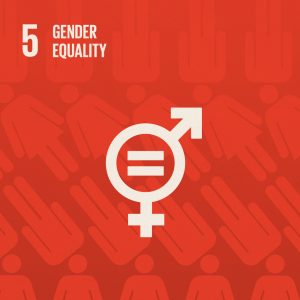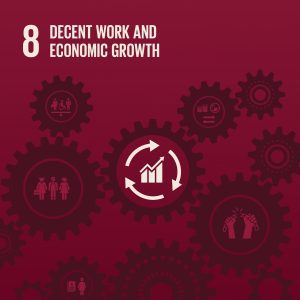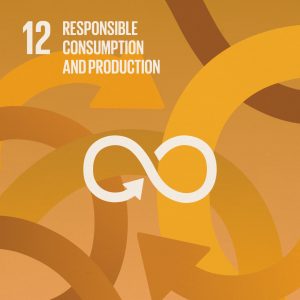“If you define the goal of a society as GNP [Gross National Product], that society will do its best to produce GNP. It will not produce welfare, equity, justice, or efficiency unless you define a goal and regularly measure and report the state of welfare, equity, justice, or efficiency.” ~Donella Meadows
More than 190 nations agree that creating a viable, inclusive economy, one that operates within the laws and limits of nature and provides decent work and sufficient income for all, is one of the great needs of our time. This need is recognized as one of the seventeen international Sustainable Development Goals (SDGs), created by these nations under the auspices of the United Nations.
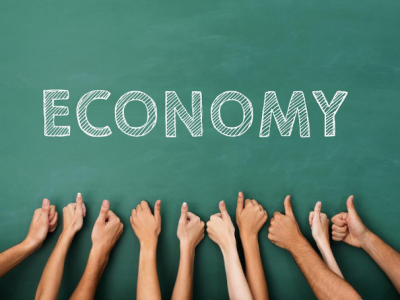
Photo by mikecohen 1872 creative commons license flikr.com
SDG 8 is summarized as “decent work and economic growth” and is described this way: “Promote sustained, inclusive and sustainable economic growth, full and productive employment, and decent work for all.”
Two words in this description stick out to me. One is the appealing word “decent,” included to describe what kind of work people should experience. I checked out Merriam-Webster and learned that decent means “marked by moral integrity, kindness, and goodwill.”
Can you imagine? A world where all work is done in environments of moral integrity, kindness, and goodwill? This environment does exist in places. There are work teams, units, and organizations in government, business, and civil society around the world where moral integrity, kindness, and goodwill are prioritized, and if some people can create these conditions, anyone can. As Amory Lovins has observed, “If something exists, it must be possible.”
It logically follows that the only way all working people can experience decent work is if the economy itself is marked by moral integrity, kindness, and goodwill—more on this below.
The other word that sticks out to me is “growth,” and it troubles me. I wonder what the authors mean by growth and how and why that word was chosen instead of “development,” especially since these are the Sustainable Development Goals, not the Sustainable Growth Goals.
My guess is it’s because growth, as measured by GNP or GDP, is the unquestioned goal for economists and policymakers. “Grow the economy” is the mantra, assuming that economic growth is forever possible and invariably desirable.
There are at least two problems with this reasoning. One is with the concept of GNP (and GDP). It was invented in the 1930s by Simon Kuznets, and he said that GNP is a terrible proxy for evaluating the health, wellbeing, and success of a society. All it does is measure economic activity.
The other problem is that there can be no such thing as perpetual sustainable economic growth. There will always be limits. The Earth is finite. Its resources are finite, as is its capacity to absorb waste. Donella Meadows reminds us that we flout limits at our peril: “There will always be limits to growth. They can be self-imposed. If they aren’t they will be system-imposed.”
We are experiencing system-imposed kickbacks triggered by the drive for perpetual growth. Climate change, biodiversity loss, ocean acidification, water shortages, pandemic outbreaks, social and political upheaval to name a few. Lots of kickbacks that are growing more painful and consequential as traditional economists and policymakers remain willfully ignorant and blind to system limits.
Ecological economist Herman Daly pioneered the understanding that the economy is a wholly-owned subsidiary of the natural world, bemoaning the fact that growth has become our secular religion, “our central organizing principle.” Let’s let Donella Meadows drive the point home: “Growth is one of the stupidest purposes ever invented by any culture; we’ve got to have an enough. We should always ask ‘growth of what, and why, and for whom, and who pays the cost, and how long can it last, and what’s the cost to the planet, and how much is enough?’”
Daly argues that, since it is long past time to drop the growth paradigm, “[w]e need a new central organizing principle – a fundamental ethic that will guide our actions in a way more in harmony with both basic religious insight and the scientifically verifiable limits of the natural world.” He suggests words such as “sustainability,” “sufficiency,” “equity,” and “efficiency” to describe that ethic.
Interestingly, Daly calls for an economy more in harmony with “basic religious insight.” He observes that religions around the world share a common set of values and ethics for how we should treat each other and the world around us, which means a commitment to, in a word, decency. How fitting.
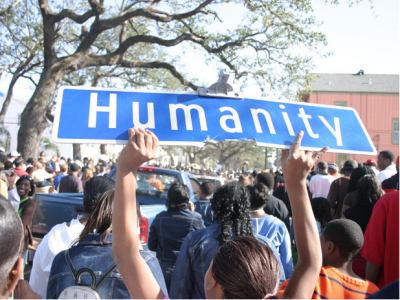
Photo by fake is the new real Creative Commons Attribution License flickr.com
Understanding the ecological context within which all human activity occurs, Daly warns that our future depends on dropping the pursuit of growth and embracing the idea of development. He explains that growth is quantitative – extracting, using, and discarding more and more stuff. On the other hand, development is qualitative, improving the quality of what already exists, using resources only to the extent they can be replenished (living off the interest, not the principle), and that any leftovers of their use (aka “waste”) can serve as food for something else in biological or technological metabolisms.
In explaining the distinction, Daly points out that “in the last 4.5 billion years the Earth hasn’t grown, but it sure has developed.”
The 2018 book A Finer Future: Creating an Economy in Service to Life explains how we got into our predicament and what we need to do to create “a regenerative economy.” That economy will have several characteristics, including flourishing within ecological limits, delivering universal wellbeing while meeting the needs of all, and providing sufficient equality to maintain social stability and security.
The authors leave us with a call and an invitation: “Our job, now, yours and mine, is to create a powerful movement for a new economy based on the core human values of human dignity, the common good, and stewardship.” In another word, decency.
Whether or not we make the shift always comes back to some version of the question asked by the authors: “So, the real question is, do we have the courage to change our economic system, to create an economy in service to life, not consumption?”
Learn about the SDGs & AU and our contributions related to this post.

